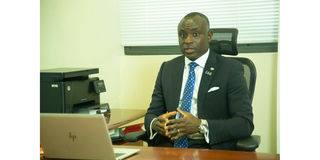Ecobank launches plan for women

What you need to know:
- Ecobank Tanzania yesterday launched an initiative that is deliberately designed to empower and support women-led and/or women-focused enterprises with financial and value-added solutions.
Dar es Salaam. Ecobank Tanzania yesterday launched an initiative that is deliberately designed to empower and support women-led and/or women-focused enterprises with financial and value-added solutions.
Code-named Ellevate Programme, the initiative seeks to boost the businesses so they can reach their full potential and succeed, the lender said in a statement yesterday.
The decision is based on the fact that Small and Medium-sized Enterprises (SMEs) account for about 90 percent of all businesses in Africa out of which, women own about a third of all registered African SMEs.
“Available data show that one-in-four (25.9 percent) of adult women in Africa start or manage a business. However, women have not enjoyed equal access to high quality, demand-driven financial services,” Ecobank Tanzania managing director Charles Asiedu, says in the statement.
He said it was being estimated that women-owned SMEs face a $42 billion financing gap, making lack of access to financing a common constraint to their business growth. (The Citizen Reporter)
“We have specially designed Ellevate to meet the needs of women entrepreneurs through the provision of comprehensive, customized and tailor-made solutions which include favourable lending rates, smart cash management enablement and a suite of value-added services such as leadership training, mentoring and networking opportunities,” he said.
Ecobank, he said, allocates a minimum of 10 percent of its Commercial Banking loan portfolio to women’s businesses.
“Women-led businesses are a largely underserved market and Ecobank Tanzania is determined to help them reach their potential, grasp business opportunities and become both scalable and sustainable.
This will enable them to play a major role in Africa’s social and economic development, in addition to creating millions of the jobs needed by this and future generations of Tanzanians.





